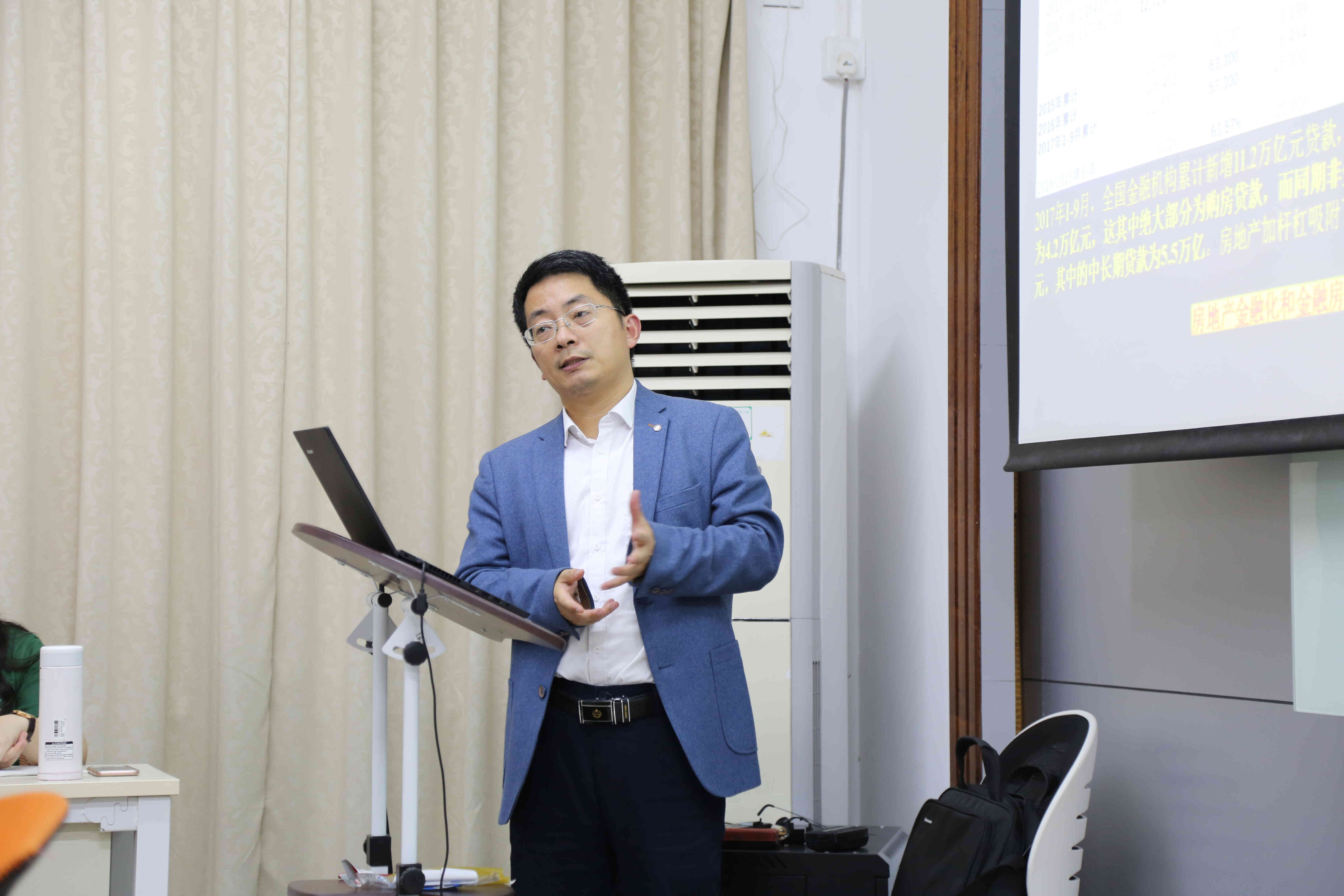On November 17, 2017, Jie Chen, a Professor at the Shanghai University of Finance and Economics (SHUFE), gave a policy lecture on “China’s Real Estate Market: Current Situation, Trends and Prospects”. Aside from the number of IESR faculty members who came to listen to the lecture, Shijun Jia, a professor at Guangzhou University, participated as a discussant.
According to Jie Chen, recent trends in the Chinese real estate market has a tremendous impact on the economy, therefore attracting a lot of attention both among academics and policymakers. Data reveals that there has been a dramatic rise in housing prices from 2004 to 2016 in the first-tier cities like Beijing, Shanghai, Guangzhou and Shenzhen which resulted in a huge sales decline. Responding to the situation, Professor Chen then explored the reasons that have driven Chinese government to de-stock real estate – the policy that was proposed in December 2015.

As Jie Chen observes, the growth of real estate investments demonstrates similar fluctuations to the ones seen in the housing prices. Also, he adds, real estate investment plays an integral role in China’s macro economy – the changes in the real estate investment usually predict the upcoming cyclical fluctuations in the economy, and real estate investment is an important component of GDP growth. However, professor notices, fluctuations in real estate investment have recently increased, investment growth has slowed down, and regional disparity has become even more significant.
Later in the lecture, Jie Chen also covered the following topics: 1) capital structure in real estate market; 2) Chinese credit funds; 3) the trends in real estate finance as well as its sources; and 4) the scale of real estate loans. Eventually, professor laid out possible future trends of Chinese real estate development and provided some valuable recommendations with regards to it.
